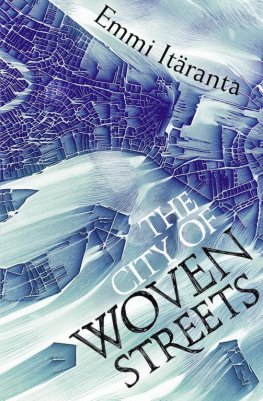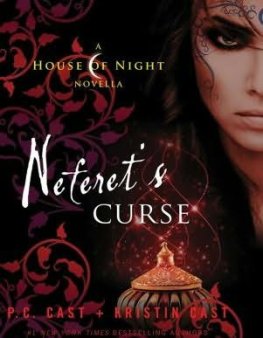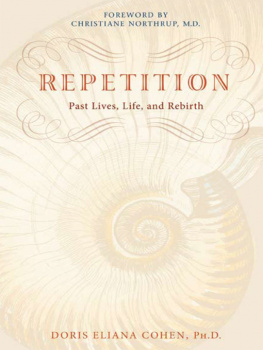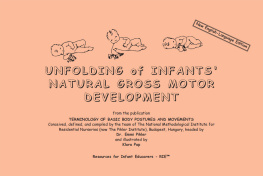Emmi Itranta
THE CITY OF WOVEN STREETS
I still dream of the island.
I sometimes approach it across water, but more often through air, like a bird, with a great wind under my wings. The shores rise rain-coloured on the horizon of sleep, and in their quiet circle the buildings: the houses grown along the canals, the workshops of inkmasters, the low-ceilinged taverns. The House of Words looks inward behind its high walls. Threads knotted into mazes run in all directions from the House of Webs, and air gondolas are suspended on their cables, dead weights above the streets.
At the centre of the island stands the Tower, smooth and blind. A sun of stone glows grey light at the pinnacle, spreading its sharp ray-fingers. Fires like fish-scales flicker in the windows. Sea is all around, and the air will carry me no longer. I head towards the Tower.
As I draw closer, the lights in the windows fade, and I understand they were never more than a reflection. The Tower is empty and uninhabited, the whole island a mere hull, ready to be crushed like a seashell driven to sand and carved hollow by time.
I also understand something else.
The air I am floating in is no air at all, but water, the landscape before me the seabed, deep as memory and long-buried things.
Yet I breathe, effortlessly. And I live.
Amber would sometimes wash ashore on the island; it was collected and shipped across the sea. As a child I once watched a jewel-smith polish it on the edge of the market square. It was like magic, one of the stories where ancient mages span yarn from mere mist or gave animals a human tongue. A sweet smell arose from the amber, the smith dipped the whetstone in water every once in a while, and in his hands the murky surface turned smooth and glass-clear. He handed the orange-yellow lump to me, and inside I saw an insect frozen in place, a mayfly smaller than the nail of my little finger. Its each limb, wing and antenna was so easy to imagine in movement that I believed it was still alive, ready to whirr and fly, when the hard shell would be broken.
Later I learned that creatures captured in amber cannot be freed. They are images of the past, fallen outside of time, and it is their only existence. When I turn the past before my eyes, I think of the mayfly. I think of the translucent brightness guarding it and distorting it. Its wings will not vibrate, it will never turn its antennae. Yet, when light pierces the stone from a new angle, the mayfly seems to morph into another. And in the posture stalled long ago is already written what will come later.
Likewise, this present already grows in my past that first night, when I see her.
She is lying on the smooth stones, face down, and it takes me a moment to understand she is not dead.
There is blood. Not everywhere, but a lot of it. She is still, like those who have stopped breathing are still. A red, glistening pool is spreading under her head; the ends of her hair are swimming in it. I see a rust-coloured streak on the hem of her dress and imagine the rest: a sticky trail running down the front of the garment, as warm as her mouth at first, before the air cools it down. The thought of the pain behind the blood twists my gut. I push it away, to where I am used to enclosing everything I cannot show.
There are not many of us yet. When the others move to make space for me, their glow-glass spheres tilt and hover in the dusk, and the pale light catches on the creases of their palms, on the coral amulets around their necks. Above the hands their faces are frightened or curious, I cannot tell which. Perhaps both. They are all younger than me, mostly first- and second-year weavers. I think of soft-bodied sea creatures, of how they slip away when something bigger comes too close.
Has anyone gone to find Alva? I ask.
No one says anything. I search among the faces, trying to find just one I can name, and fail. I kneel next to the girl on the ground and take her hand. It is soaked in blood, and so is mine, now. I do not mind; there will be time to wash it later. I see blood every month. Not only mine, but that of others, too. When hundreds of women live in the same house, someone is always bleeding. We do not get childbirths here, not often anyway, but we see enough of other varieties of bloodshed.
The girls skin feels cold, her arm limp and heavy. I know I should not touch her until the healer comes.
Go and find Alva, I say.
They shift, a restless cluster of silence. No one takes a step to go.
Unexpectedly the girl moves under my hand. She turns over, raises her face and spits blood and strange-shaped sounds from her mouth. Bright red drops fall across my jacket. They make a pattern, like blood coral ornaments on a rich mans cloak.
Go, I order. Now!
A second-year weaver turns and runs towards the other side of the square confined by stone buildings. The moments are slow, the whispers a surging sea around us. The wrist within my fingers is sinewy and narrow. More pale-blue spheres of light float through the dark towards us from the direction of dormitories and cells, more hands and faces behind them. A few weavers stop to fill their glow-glasses from the algae pool in the middle of the square; its shimmering surface vibrates and grows smooth again. Everyone must be awake by now. Eventually I see a woman in white approach across the square. She is carrying a stretcher under her arm. A tall figure I recognize as Weaver is walking at her heels. Light spills on the stones, catches in the folds of nightdresses and hair and limbs. Alva and Weaver order everyone to give way. When there is enough space, they place the stretcher down.
I think you can let go of her hand, Alva says.
I do. I get to my feet, withdraw into the crowd standing around us and watch as Alva and Weaver lift the girl onto the stretcher and begin to carry her towards the sick bay.
Somewhere, the bells of the city begin to toll sea-rise.
Some flooded nights I watch the city below from the hill. I follow the waters that rise high and wild, swell across courtyards, push aside chairs and tables stacked up in a futile attempt to make frail, treacherous bridges. But the sea never reaches the House of Webs. Weavers turn over when the bells toll and do not grant it much thought.
This night is different. Sleep is thin in the house, because strange blood is drying on the stones of the square. Sand flows slow in hourglasses. Coughs, footsteps and words exchanged in secret fade away little by little. I see the girl before me every time I close my eyes. Although I know the attacker must be far away, every shadow on the walls is darker than usual.
I pull the last dormitory door of the night-watch round closed behind me. My brother tells me I should get more sleep, but being awake has its advantages. The corridors of the house are long, and someone must walk them all night, look into every dormitory, listen behind the door of each cell. Those are the Councils orders, and therefore also Weavers. It is not a precaution against those coming from outside the House of Webs. We have all heard the drinking songs about wet weaver wenches circulating in the taverns and on the streets, but those are just words. In order to get into the house, you would have to climb the steepest hill on the island and find your way through the maze of wall-webs undetected, and you would risk serious sanctions in doing so. No: the night-watch is to keep an eye on those who already live within the walls.
The luminous ribbons of the glow-glass pipes throw cold sparks along the corridors, revealing the unevenness of the worn stone. The current in the canals is strong; it drives the swift movement in the pipes, and in fast water the algae wakes to shine bright. A draught blows past me, as if a door is opened somewhere, but I do not see anyone. I could return to my cell. I could sleep. Or stay awake in the fading shine of the glow-glass, wait for the morning.













